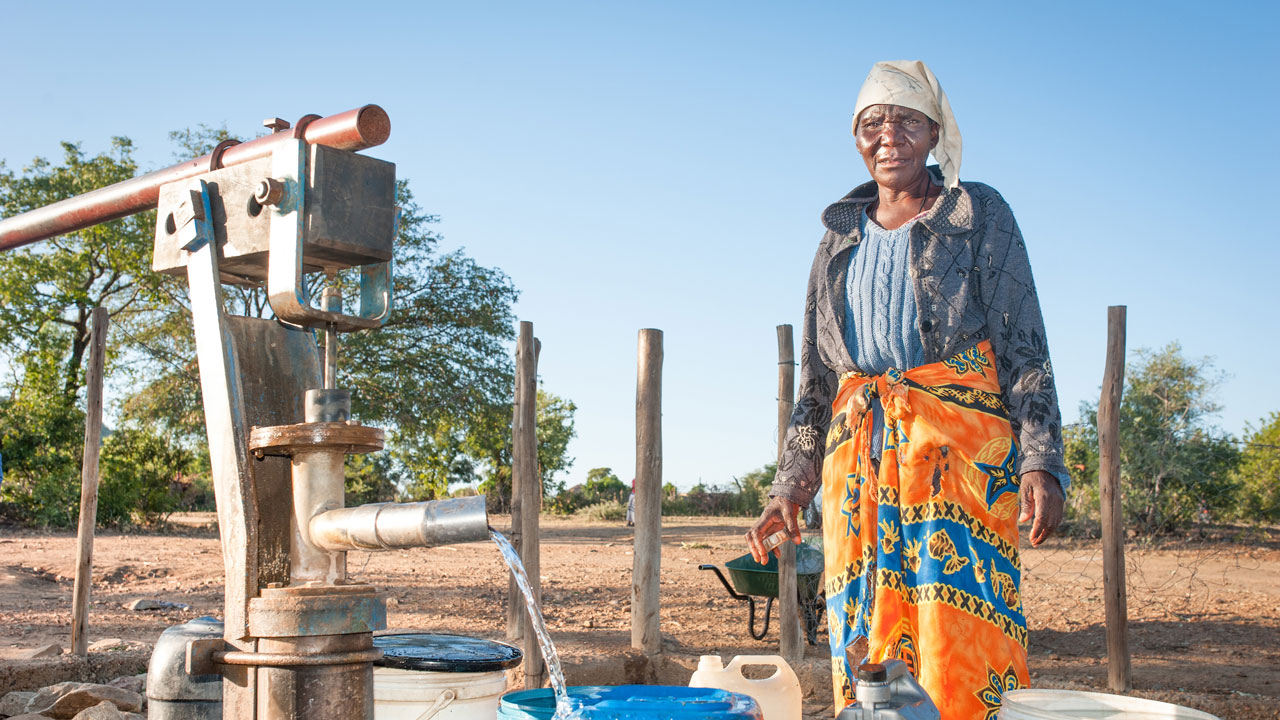
The water issues that exist in Southern Africa are complex and shared across country borders.
It is a vast area with a complex socio-political landscape, geography and a variable climate that makes it prone to long droughts and flooding.
These extreme weather events are likely to increase as a result of climate change. Stable, well-managed water infrastructure – such as rivers, lakes or river basins – not only ensure access to drinking water and agricultural irrigation but are also essential to mitigating and adapting to the negative impacts of climate change. If left unaddressed, the issues and inequalities in water supplies can destroy food crops, driving conflict and famine.
CRIDF, the Climate Resilient Infrastructure Development Facility – a £31 million programme funded by the UK’s Foreign, Commonwealth & Development Office – worked with 12 countries in Southern Africa to provide long-term solutions to water issues that affect and threaten the wellbeing over 200 million people, many of them poor.
CRIDF’s main goal was to transform the way water infrastructure is used to build climate resilience for the poor across Southern Africa.
Our team delivered the technical services that provided the skills needed in infrastructure planning, delivery, operations and financing to improve climate adaption and resilience. We led these projects from their preparation to financing and realisation, while also supporting sector-wide reform through Technical Assistance to regional bodies and national policymakers.
An important part of our approach involved an ‘infrastructure development facility’ model which worked to bring together financial resources for projects in the region, and to advise partners of the best way to select, manage and implement their projects.
We selected these projects from regionally approved lists, with communities, utilities, and governments all heavily engaged in the project preparation and delivery process. Projects included all aspects of integrated water resource management – water supply, sanitation, irrigation, hydropower, early flood warning systems – and covered all aspects of engineering, operations, management and monitoring.
Results
CRIDF has prepared nearly 50 projects, 16 of which have been implemented on the ground. Our work on CRIDF has mobilised over €15m of direct finance for sustainable small-scale water infrastructure projects across 12 countries in Southern Africa – and secured a further €215m committed in donor pipelines and by the private sector. Since the commencement of the programme in 2013, the projects have improved climate resilience for more than 1,500,000 people.
The programme has raised finance from development finance institutions, government funds, climate funds, regional funds, and the private sector – underpinned by ongoing political and economic cost-benefit analysis. CRIDF Phase 2 (2017-2024) has seen seventeen projects brought to financial closure, with £109m of public finance and £2m of private finance mobilised.
At a glance
Location
Southern Africa
Implementation period
2017–2024
Client
Foreign, Commonwealth and Development Office, UK
This video provides an overview of the FCDO-funded Climate Resilient Infrastructure Development Facility (CRIDF), featuring interviews from stakeholders from Southern African Development Community, CRIDF and other CRIDF partners within Southern Africa.
CRIDF’s partnership with the Zambezi Watercourse Commission (ZAMCOM) helps improve the lives of the the 45 million people that live in the area of the Zambezi river basin, the fourth largest in Africa. By taking care of the environment and water-related resources, we work to reduce poverty and contribute to a growing economy.
The access to water in Southern Africa varies across the different regions and leaves many communities disadvantaged. This video outlines how CRIDF is working with river basin organisations to transform the way they use water infrastructure to build climate resilience for the poor and foster economic growth through equitable and sustainable water supplies.
This video highlights how CRIDF is using early warning flood forecasts to support vulnerable communities across Southern Africa that are becoming increasingly affected by floods as a result of climate change.
Hotspot mapping is a central to CRIDF’s inclusive project design. The approach helps stakeholders to understand the risks communities face and how their needs can be addressed in an appropriate and effective way.
Leonard Magara, Chief Engineer at CRIDF, talks about CRIDF’s integrated approach to providing holistic water infrastructure to communities across Southern Africa.